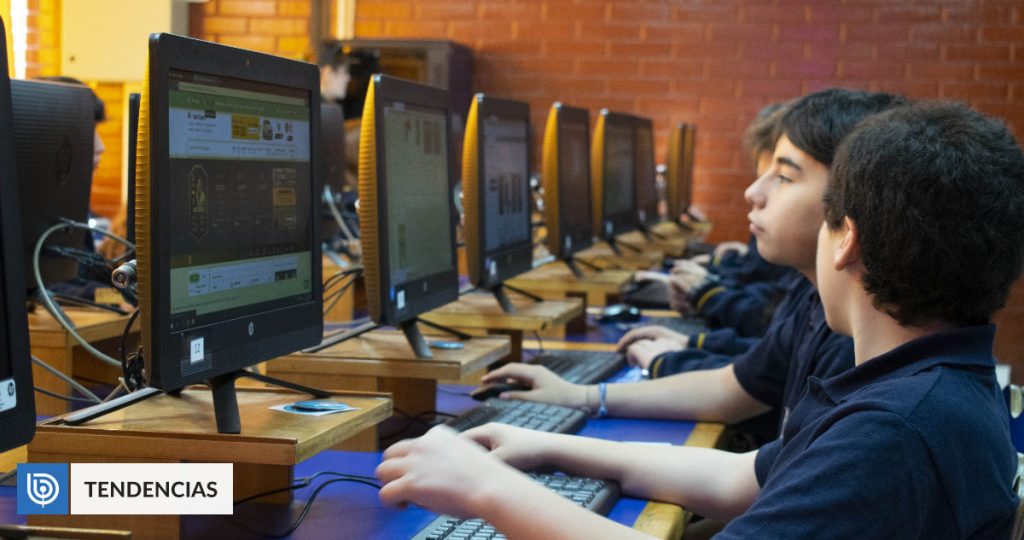A new project called digital video Seeks to integrate a branch into Chilean education Computer Science (CC). It is a five-year initiative that involves an investment of $6.7 million.
In Chile, according to the Organization for Economic Co-operation and Development, only 6% of the population has the skills to face the technological changes on offer, and 42% of the general population has no basic knowledge.
As for the foundations of the project -Kodea and BHP-, although the pandemic has revealed the urgent need to address this problem, the challenge as a country goes further. And not just for reasons of improving future employment prospects for children and young adults, but because the process of teaching computational thinking, programming, and all that this cognitive structure involves promotes high-level cognitive skills.
“IdeoDigital is, in more specific terms, to enhance the teaching and learning of computer science from grade 1 to grade 4, by implementing a program that will affect more than a thousand schools, more than 850 teachers, and 150,000 students”Its creators indicate through a statement.
The project is five years in duration and hopes to demonstrate Chile’s need for large-scale talent development for the digital world, so that public policies are created that will allow the inclusion of the subject of computer science in Chilean curricula. school system.
Currently, the national curriculum focuses on the use of Information and Communication Technology (ICT), by theme technology, as a tool to support learning the contents of primary and secondary education, but not as a study object. For this purpose, IdeoDigital will develop Code.org-based content and syllabus, for the subject of technology, content that will be available as a public good and free of charge to the entire educational community.
“Today we must create a future in which all Chilean school-age children, regardless of their socioeconomic background or the type of school they attend, have the opportunity to develop the digital skills necessary for their full dissemination in the digital society,” says Monica Retamal, Director of Fundación Kodea, if We don’t give them this knowledge, we leave them.
The initiative aims to train students in skills in communication, empathy, assertiveness, digital citizenship, critical thinking, imagination, metacognition, analytics and problem solving, among others, and gain knowledge about algorithms, programming, networking, the Internet, and the impact of technology on society.
“At Fundación BHP, we believe that quality learning is the way to develop the skills needed for the future and for all children to develop their potential. Today we have a unique opportunity to transform the system and better equip this generation of students and future generations with the skills needed for the future. If we enhance digital inclusion and provide better educational opportunities, we can take An important step in bridging the gap in the quality of education and thus, with everyone’s contribution, we contribute to more equitable and just societies,” says Alejandra Garces, BHP’s Chile Program Director.
IdeoDigital: Computer Science in the Classroom
Computer science is a discipline of study that develops knowledge related to computers and algorithms; Starting with its basic principles, hardware and software, their applications, and their impact on society. This major considers programming, computational thinking, data science, networking, cybersecurity, robotics, artificial intelligence, and machine learning, among others.
This year IdeoDigital started with a beta phase in 23 schools; 15 in the metropolitan area and eight in the Ñuble region. Over the next four years that the project will continue, more schools from all regions of Chile will be integrated, up to the national scale.
The initiative will support teachers in their digital learning through bootcamp-type courses with activities specifically created and adapted to their level of knowledge and the context of their regional school, in order to create a network of leading computer science schools.
Subsequently, IdeoDigital does the follow-up for one or two years depending on the need of each institution. In these exercises they are taught to use the Code.org platform; Social, emotional, creative and critical thinking skills; Semester preparation sessions and feedback on implementation; and teacher training to train other teachers.
One of the first schools to join the project is a school San Nicolás de Ñuble Polyvalent Secondary School. “We decided to be a part of this project because we realized that understanding how technology works is an essential tool to develop our students and understand the world they have to work in. Victor Reyes, Director of the Foundation, explains that a lack of digital skills and competencies should not be a barrier for our students to succeed. What they choose to do tomorrow.







More Stories
“Those who go to museums but do not see an oak tree in the countryside should blush.”
Michoacana Science and Engineering Fair 2024, When the Call Ends – El Sol de Zamora
Dr. Miguel Kiwi, winner of the National Science Award, gives his opinion on nanoscience in Chile